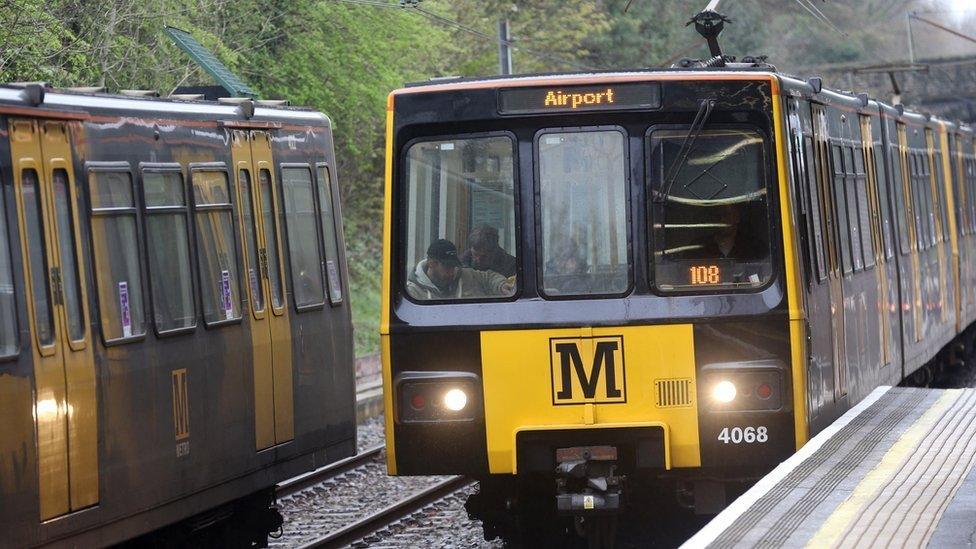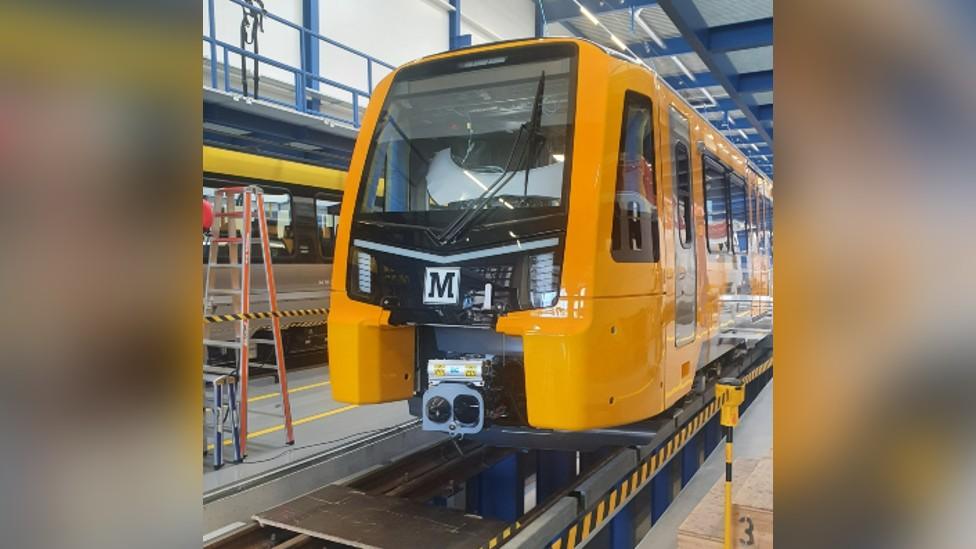Ageing Metro technology blamed for high temperatures
- Published

Metro's current fleet is more than 40 years old and has outdated technology, its operators say
Metro bosses in Tyne and Wear have apologised after ageing trains led to passengers enduring high temperatures.
Commuters have reported travelling on carriages with heaters running at full blast on mild days.
Outdated technology on the 40-year-old trains means temperatures cannot easily be adjusted at the flick of a switch, chiefs said.
More than half the fleet has now been switched to summer heating mode, it has been confirmed.
Stadler, which is responsible for maintaining the trains, said as a result of using old parts "sometimes the heating system does not work automatically and needs to be adjusted manually" by engineers at the depot.
That lack of flexibility means once a train is sent into service it must remain in the same heating mode for the rest of the day, according to the Local Democracy Reporting Service.
'Too warm'
"It's one of the challenges of working with a 43 year-old fleet coming to the end of its life," Stadler said.
"In the spring, Metro trains are checked one by one to ensure that the winter heat settings are turned off.
"However, not all of the trains that we need for service have had their heating systems altered yet and can feel too warm for some passengers. We are sorry for any inconvenience this causes."
The first train from a new £362m fleet is due to come into operation later this year with a further 45 trains due to arrive by 2025.
Stadler, which is building them, has promised each carriage will have "an advanced heating, ventilation and air conditioning system".
Network operator Nexus believes the new trains will be "transformative" and should "eradicate the issues that we sometimes see with the heating in the current fleet".
Last summer, the ageing network saw some services suspended after overhead cables sagged due to a heatwave.

Follow BBC North East & Cumbria on Twitter, external, Facebook, external and Instagram, external. Send your story ideas to northeastandcumbria@bbc.co.uk, external.
Related topics
- Published14 April 2023

- Published20 July 2022

- Published19 July 2022
